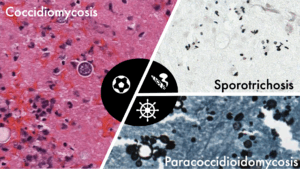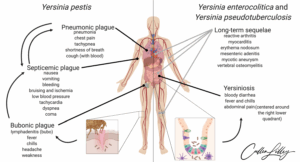Noteworthy
Phytoplankton, photosynthetic microbes that inhabit surface ocean waters, form the base of marine food webs. These keystone microbes are the oceans' primary producers. Importantly, their ability to carry out photosynthesis depends on their ability to make chlorophyll. And it turns out, several of the enzymes that catalyze the synthesis of chlorophyll require iron. Bottom line, the entire oceanic food web relies on dissolved iron, which is not always readily available. Where in the surface ocean waters, you might ask, is the concentration of iron so low as to make chlorophyll biosynthesis practically impossible? Perhaps not surprisingly, 35% of the global ocean is chronically depleted in dissolved iron. Does that mean that there is little or no primary productive in over one third of the Earth's oceans?
The diatom Fragilariopsis cylindrus, the main character of this noteworthy study. Source
Not quite. The results of extensive studies published in 2023 demonstrate that diatoms – an important component of phytoplankton – have a physiological trick up their sleeve (or better stated "a trick inside their silicon shell"). They grow well in iron-limited waters. In iron replete waters their plastids harbor the full chlorophyll-dependent photosynthetic machine. But in iron-limited waters they can still use light to generate a proton motive force that drives ATP synthesis, thus enhancing their growth. Their trick? They switch their energy-generating photoreceptor! In iron-limited waters they use a proton-translocating microbial rhodopsin. In addition to laboratory experiments that demonstrated the role of rhodopsin in energy generation, the authors showed that the abundance of rhodopsin transcripts in natural diatom communities is inversely correlated with the availability of dissolved iron. Quite clever, those beautiful silicon-encased diatoms!
Do you want to comment on this post? We would be delighted to hear from you! Please send us an email, or comment on Mastodon or Bluesky. We'll be posting comment threads that arise below (with your permission). Feel free to subscribe if you'd like to get regular notifications about new blog posts.


